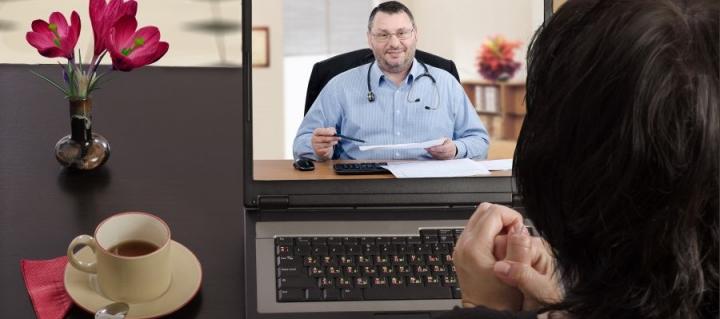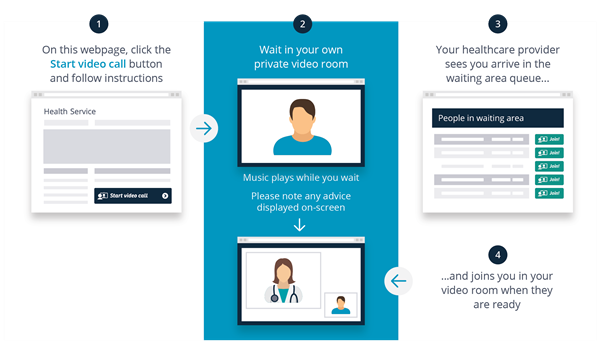ViCo (video conferencing) study
Follow-up consultations in general practice: assessing the feasibility and acceptability of video consultations over the internet, from the perspective of patients and primary care clinicians.
Background
An increasing policy emphasis on delivering timely patient access to health care and attempts to improve the quality of care alongside an increasing workload has seen a growing consideration of innovative methods of delivering health & social care.
More people than ever now communicate through the internet, at work, socially and in managing everyday life, e.g., shopping and banking. In the face of growing demands on primary care services, more innovative ways of providing patient care are being considered and conducting video consultations through the internet is one of them. They already take place in certain rural areas of Scotland and the UK.
Today, not everybody who needs to speak to a GP or Practice Nurse has to visit their GP practice. Using telephone consultations (TCs) as an alternative to face-to-face consultations (FTFCs) has been shown to be more time-efficient and reduce access difficulties to primary care for working and housebound patients. However, TCs come at the cost of loss of visual contact and a debate exists regarding how such consultations differ from FTFCs in terms of quality of content and/or safety.
Internet-based video consulting (VC) has the potential to overcome these barriers for conditions that do not require contact examination, such as mental health reviews, medicine reviews in chronic illness patients and follow-up appointments.

Follow-up consultations in GP practices
This is a collaborative research project involving Edinburgh, Warwick and Exeter Universities and NHS Lothian. We are working with 10 GPs and 3 Practice Nurses across 6 GP surgeries in Lothian.
Using a recently launched initiative called Attend Anywhere we will be assessing patients and primary care clinicians’ views of conducting a follow up consultation by video over the internet.
We will be comparing the video consultations with face to face and telephone consultations from a clinician and primary care perspective.
We will only be involving patients who require a follow up consultation and who do not require a physical or a diagnostic examination.

What is Attend Anywhere?
Attend Anywhere is a suite of services and web-based management software designed to help health and care providers offer video call access to their services as part of day-to-day operations.
Aims
The objectives of the ViCo pilot study are:
- to assess the feasibility, acceptability and effectiveness to patients and primary care clinicians of VCs via the internet using Attend Anywhere for follow-up consultations
- to assess the potential differences between VCs, TCs and FTFCs by comparing their duration, nature and content, and their impact on subsequent use of services
Methods
This is a mixed methods study involving the use of structured questionnaires, semi-structured interviews and focus group work to investigate patients and primary care clinicians’ views on using the Attend Anywhere system for follow-up consultations. We will be:
- audio recording 150 follow-up consultations between a patient and GP or practice nurse (50 FTFC, 50 TC and 50 VC)
- analysing the audio recordings
- an online patient questionnaire
- a primary care clinician questionnaire
- semi-structured telephone interviews with patients who used video over the internet via Attend Anywhere for their follow-up consultation
- focus group/semi-structured interviews with primary care clinicians from the participating GP practices in Lothian
ALLIANCE Scotland have produced this video interview with Dr Drummond Begg at Penicuik Medical Practice: "A digital story: video consultations".
Completion date: end of September 2018
| Funder | Scottish Government Chief Scientist Office |
| Chief Investigator | Professor Brian McKinstry |
| Study researchers |


